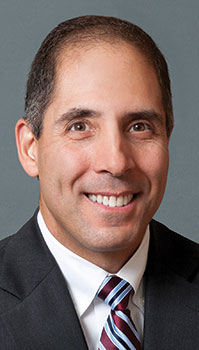COVID infusion therapy shifts to the home
By Theresa Flaherty, Managing Editor
Updated 12:16 PM CDT, Fri October 29, 2021
 YARMOUTH, Maine – The Delta variant of COVID-19 has accelerated demand for monoclonal antibody therapy provided in the home, say home infusion providers, who are stepping up to meet that demand.
YARMOUTH, Maine – The Delta variant of COVID-19 has accelerated demand for monoclonal antibody therapy provided in the home, say home infusion providers, who are stepping up to meet that demand.
“Hospitals don’t have the bandwidth and they don’t want the patients in their settings,” said Greg LoPresti, CEO of Upstate HomeCare in Syracuse, N.Y. “Their intake process takes a long time compared to us. We’ve taken a lot of the caseloads off hospitals.”
In May, CMS boosted payment to $750 to administer mAb treatment to Medicare beneficiaries with COVID-19 in their homes. Previously, providers were paid $310 to administer it in skilled nursing and long-term care facilities.
LoPresti says that pay increase has been critical in moving the site of care to the home.
“Before, we were losing money,” he said. “We’re not doing this as a money maker, but (it takes a large) amount of time to vet the patient, pull their insurance, push it to the pharmacy, drive to the home and (provide) the three-hour therapy.”
Soleo Health announced in September it had been tapped by a major health system in Texas to provide mAb therapy in the state, which has been hard hit by surges of COVID-19. The provider quickly developed processes to efficiently qualify patients, who must meet certain criteria, including age and weight requirements, and who can’t actively be on oxygen.
“We created customized referral forms to make it easy, so they understand the pre-qualifications that need to happen,” said Drew Doyle, senior vice president. “We want to get doses in the patients within 10 days of diagnosis. A lot of what we do is frontloaded at the intake. Sometimes, the short therapies can be challenging because it gobbles up the reimbursement quickly.”
Like LoPresti, Doyle says the provider doesn’t see the therapy as a money maker, it’s simply the right thing to do.
“It’s not a therapy that’s going to catapult us to the level, but we want to be good stewards,” he said. “You want to avoid these patients having to be admitted. When hospitals are at 100% capacity, you don’t want to be gobbling up beds for someone who just needs a dose. It also limits the exposure of other health care workers. It’s the ideal therapy to be doing at home.”
NHIA is already looking past the current public health emergency, when demand for mAb is no longer high, but a need still exists.
“There is no home infusion coverage for these therapies without PHE flexibility,” said Connie Sullivan, president and CEO. “It’s really critical that everyone understand that without policy change, this will go away and there may not be an option.”
Comments